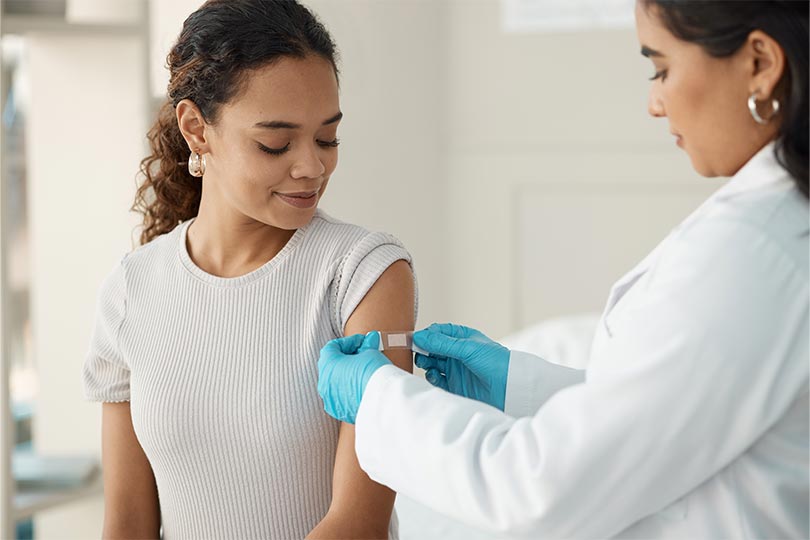Planning an international trip can be exciting. There's so much to do before you go—from packing your bags and planning your itinerary to dreaming about all the amazing experiences you'll have. But there's one important thing you shouldn't forget: making sure you're up to date on your vaccinations.
Depending on where you're going, you might need to get some shots or boosters before you leave. This is especially important if you're traveling to places where certain diseases are more common than they are at home.
Vaccinations for international travel
The Centers for Disease Control and Prevention (CDC) has a list of vaccines you might need before you travel. They even have specific guidance pages for different countries, as some countries require specific vaccinations, so you can find out exactly what you need for your trip.
One vaccine you might need is for hepatitis A. This is a liver infection that's more common in some parts of the world. Even if you received the hepatitis A vaccine as a child, it's a good idea to check with your healthcare provider to make sure you completed the full vaccine series and confirm you're still protected. Immunity has been shown to persist for at least 20 years after vaccination, but the exact duration of protection is not known.
Another important vaccine is for protection against measles, mumps, and rubella (MMR). According to the CDC, although endemic measles has been “eliminated” from the U.S. since 2000, there are still occasional outbreaks, and the virus can be common in other parts of the world. Most people get the MMR vaccine as children, and it typically protects you for life. But if you're not sure if you had received this vaccine, or if you're traveling internationally, the CDC recommends that teens and adults should get two doses of the vaccine, at least 28 days apart.
If you're pregnant or have health issues that may affect your immune system, it's important to talk to your provider to determine if it is appropriate to receive specific vaccines. The CDC has a comprehensive list of vaccines to consider getting before travel, but it is best practice to check with a healthcare provider to identify which vaccines would be best for you based on your specific situation.
- COVID-19
- Chickenpox
- Cholera
- Flu (Influenza)
- Hepatitis A
- Hepatitis B
- Japanese encephalitis
- MMR (Measles, Mumps, Rubella)
- Meningococcal
- Pneumococcal
- Polio
- Rabies
- Shingles
- Tdap (Tetanus, Diphtheria, Pertussis)
- Typhoid
- Yellow fever
Testing your immunity status
Before you travel, it's important to make sure you are up to date on your vaccines. The CDC recommends that those who plan to travel should seek travel health guidance from their healthcare provider or a travel health specialist at least 4-6 weeks before the trip. They can help determine which vaccines are recommended based on your specific travel destination and your health status.
You can also get tested to check your immunity to certain diseases and partner with your provider to figure out which travel vaccines you need prior to departure. Labcorp OnDemand offers a Standard Immunity Test, a 5-in-1 immunity panel test to help evaluate your immunity status for five infectious diseases to determine if further vaccination or boosters are needed. Labcorp OnDemand also offers a Hepatitis A Antibody Test to assess your body’s protection against the hepatitis A virus.
If you had traveled to an area with high rate of TB disease (most countries in Latin America, the Caribbean, Africa, Asia, Eastern Europe, and Russia), Labcorp OnDemand also offers a Tuberculosis (TB) Blood Test to help you find out if you have ever been exposed to TB bacteria. Remember, these tests can't tell you if you have an active infection. But they can give you and your provider useful information to help keep you healthy on your travels.
By taking care of your vaccinations and health checks before you go, you can focus on enjoying your trip and making amazing memories.







